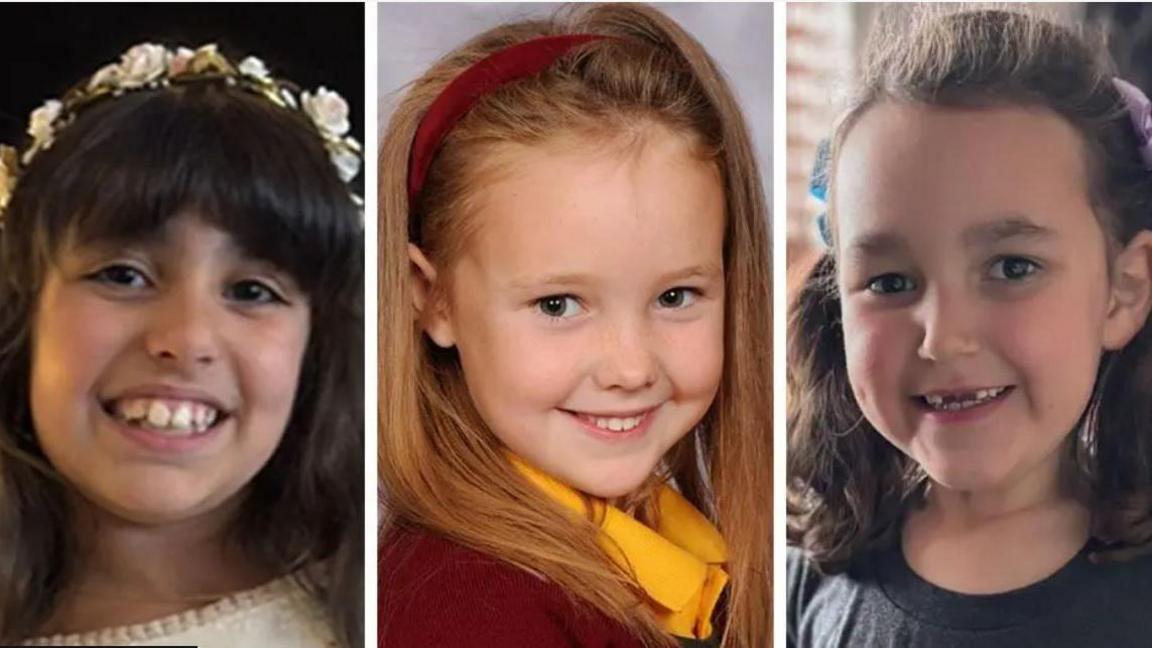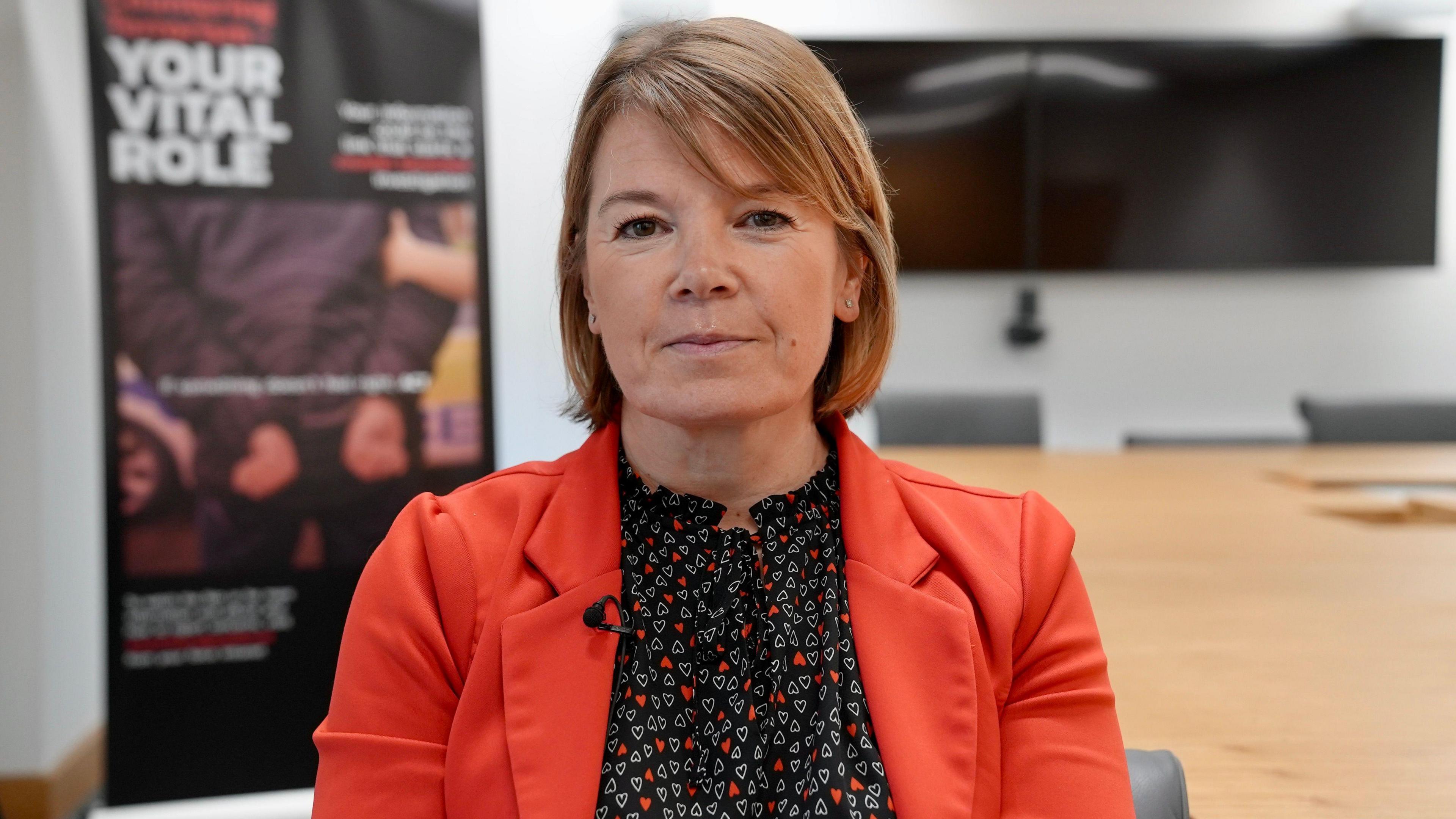Terror cop's extreme online content warning to parents

Axel Rudakubana was sentenced to a minimum of 52 years in prison for murdering three young girls in Southport
- Published
A top counter terror police officer has called for parents to "be alive" to extreme content children may be viewing online.
Lone extremists "fed" by violent material on social media now pose "one of the biggest risks", Assistant Chief Constable Wendy Gunney believes.
The head of counter terrorism policing in Wales warned parents not to be "complacent" about the risks.
It comes after Prime Minister Sir Keir Starmer said terrorism had "changed" following the conviction of Cardiff-born Axel Rudakubana for the murder of three young girls in Southport.
- Published21 January
Rudakubana was sentenced to a minimum of 52 years in prison on Thursday, where the judge said he planned to kill as many people as he could.
Mr Justice Goose said Rudakubana's actions did not "meet the definition of an act of terrorism within the meaning of the legislation", but said his culpability was "equivalent in its seriousness to terrorist murders".
Earlier this week Sir Keir said there was a "new threat" of "extreme violence carried out by loners, misfits, young men in their bedrooms".
In a wide ranging interview before the prime minister's announcement, Ms Gunney said violent material on the internet was contributing to "self-initiated terrorism".
"The risk of somebody becoming a self-initiated terrorist, so actually just taking that material and making their own minds up about something, and going out and committing action that isn't organised or co-ordinated by a wider group of people - that's probably one of the biggest risks we've got in the UK at the moment," Ms Gunney added.
She said the ideology of some perpetrators now "isn't particularly clear".
The prime minister said the law could be changed "to recognise this new and dangerous threat".

Elsie Dot Stancombe, Alice da Silva Aguiar and Bebe King were stabbed along with eight other children and two adults
Rudakubana had been referred three times to the UK government's anti-extremism Prevent programme, external, but it failed to recognise the danger he posed.
An initial review over the summer found Prevent failed to flag Rudakubana as a serious threat because he did not exhibit a commitment to a single radical ideology.
Home Secretary Yvette Cooper said too much weight had been placed on the absence of ideology.
Official Home Office figures show of all the Prevent referrals in 2023-2024, 36% were linked to people with no ideology.
A far higher proportion than those with an extreme right-wing or Islamist ideology.
Of all the Prevent referrals in 2023-2024:
36% were related to individuals with a vulnerability present but no ideology
19% to extreme right-wing
13% regarding Islamist radicalisation
2% to concerns regarding school massacres

Assistant Chief Constable Wendy Gunney said parents need to "be alive to the issues"
In her first interview since assuming her role, Ms Gunney said teenagers as young as 15 and 16 were being arrested in Wales for terror offences, including possession of terrorist material and knives.
Ms Gunney said the case of Alex Hutton, 19, from Swansea highlighted the "very prevalent" threat of "self-initiated" extremism.
Hutton held extreme racist, transphobic and homophobic views and pleaded guilty to terror offences and assault after attacking a transgender woman, leaving a trainer imprint on her face.
Hutton distributed extreme videos encouraging and glorifying terrorism.
He was sentenced in 2024 to more than five years in prison.
Ms Gunney, who also oversees organised crime policing said it was "very difficult to predict" the moment when a young person decides to go from watching extremist material in their bedroom to committing an act of terrorism.
She said parents were sometimes "complacent" about the extreme material their children were viewing.
"We have seen parents be complacent, perhaps not be as intrusive as they should be with the online activity that their children are doing," she said.
Ms Gunney said "you would like to think" parents would "intervene" when objects such as daggers, Nazi memorabilia and banned terrorism manuals start appearing in children's bedrooms.
She urged all parents "to be alive to the issues".